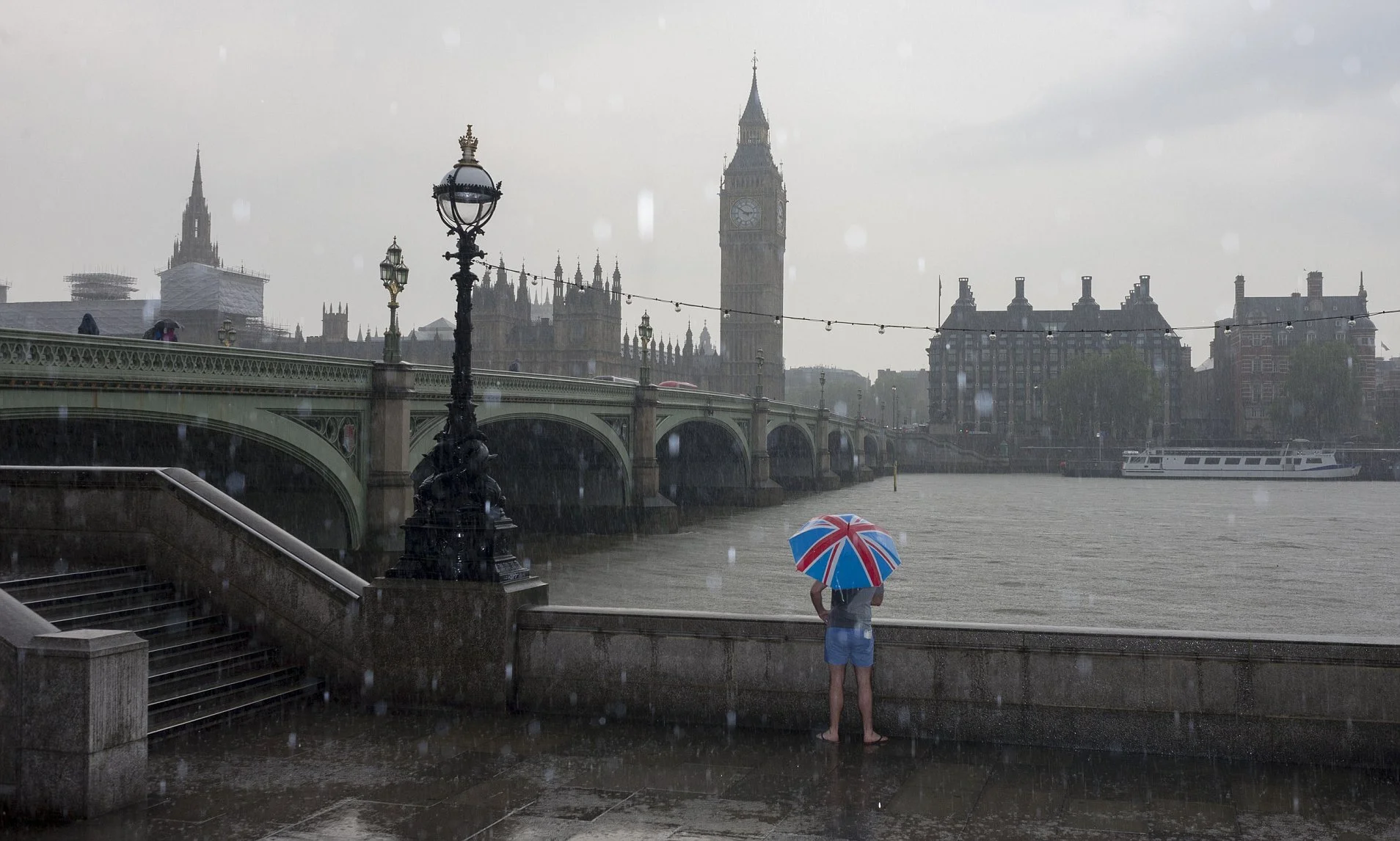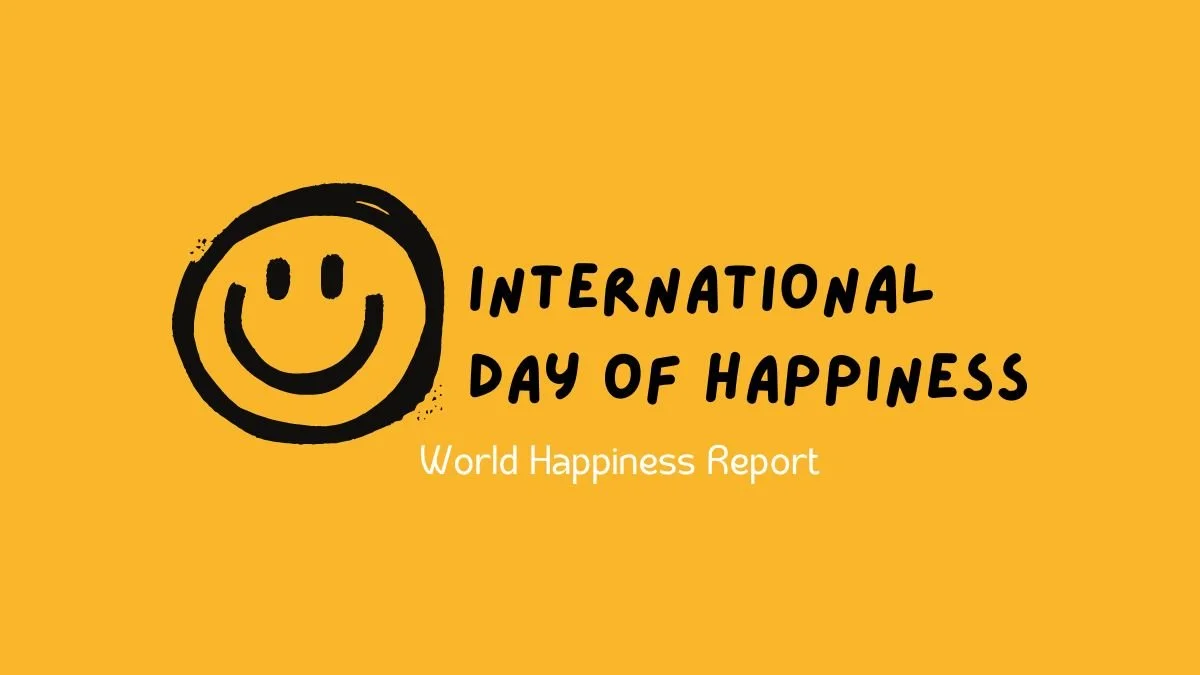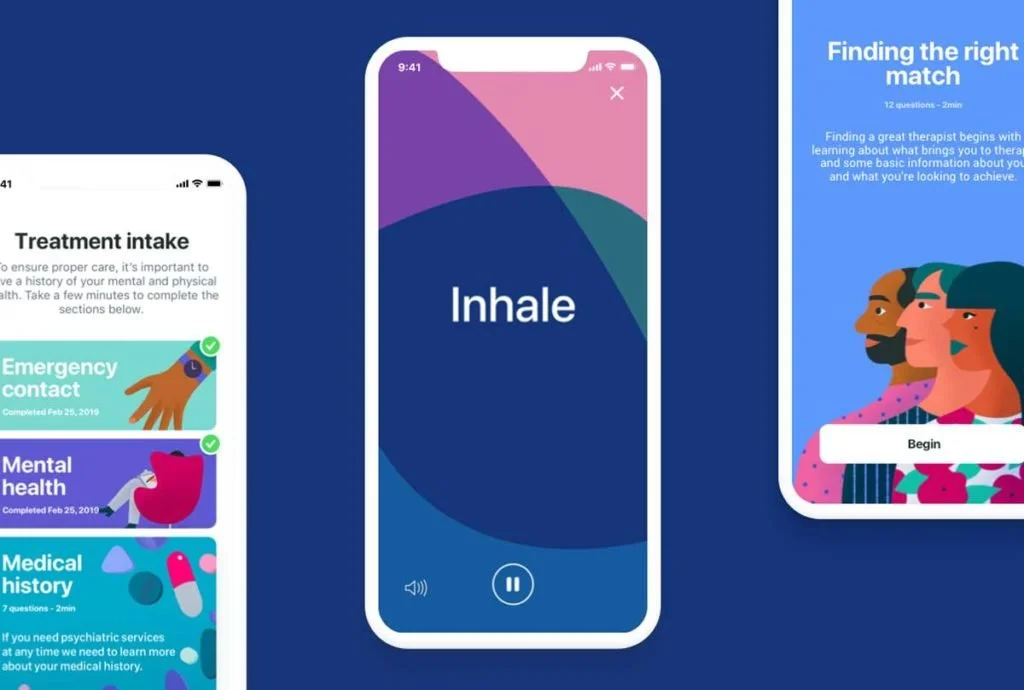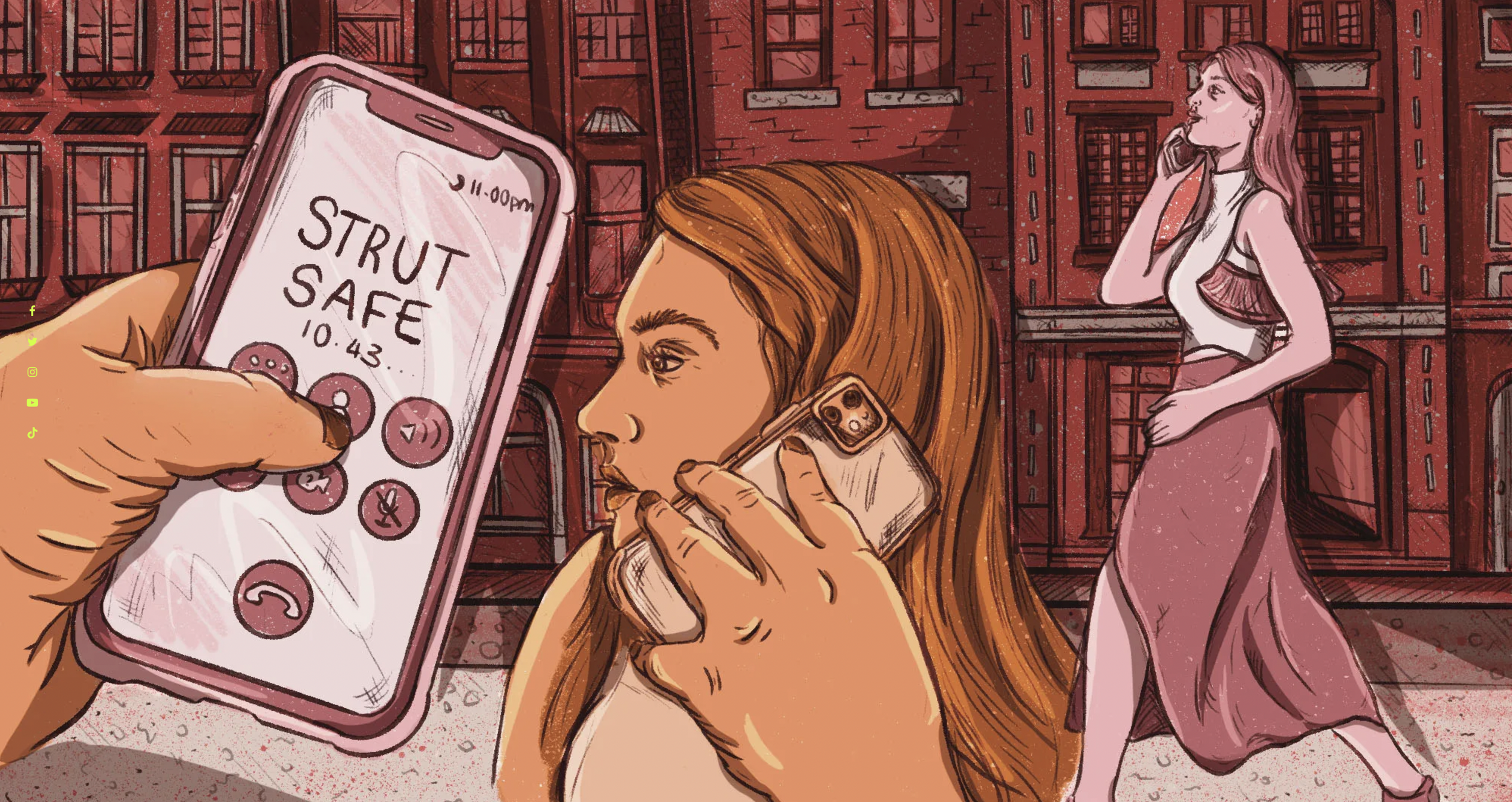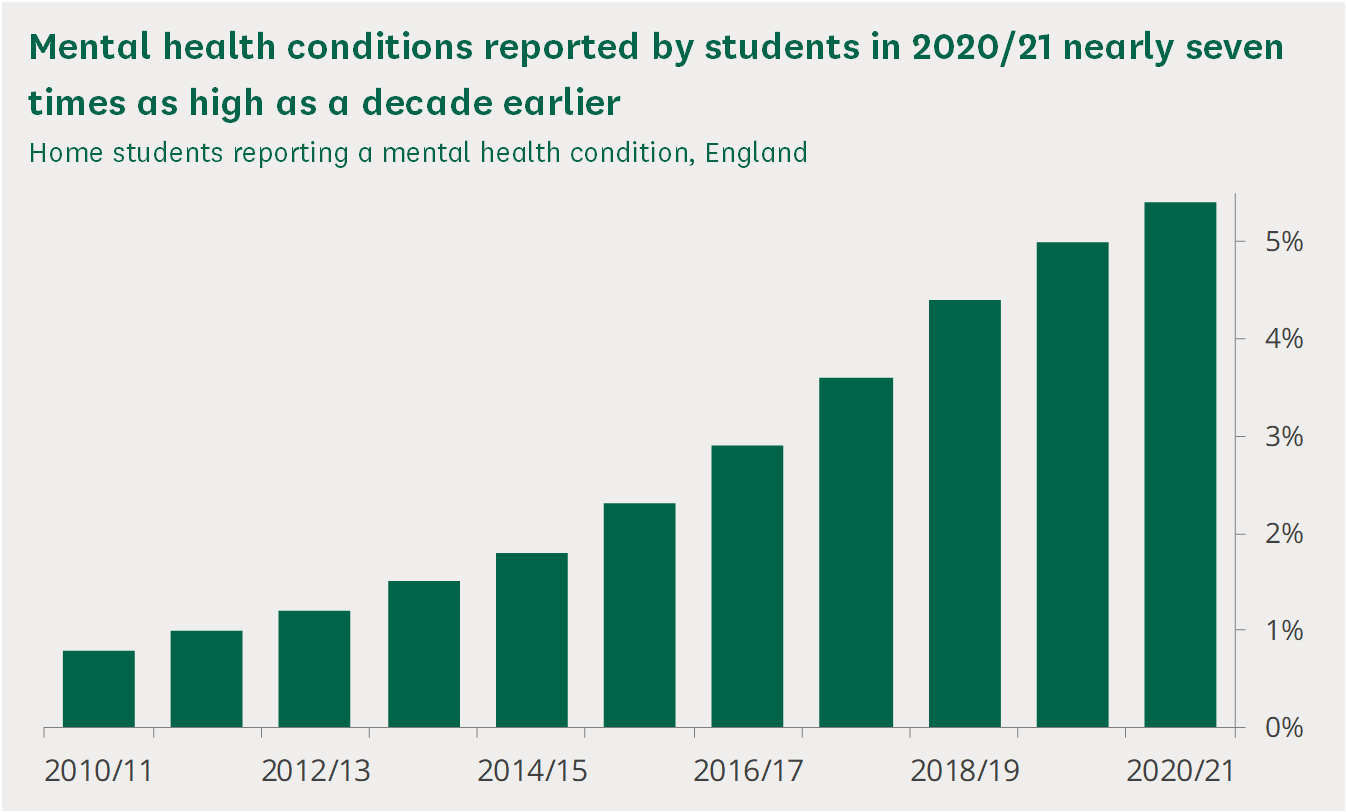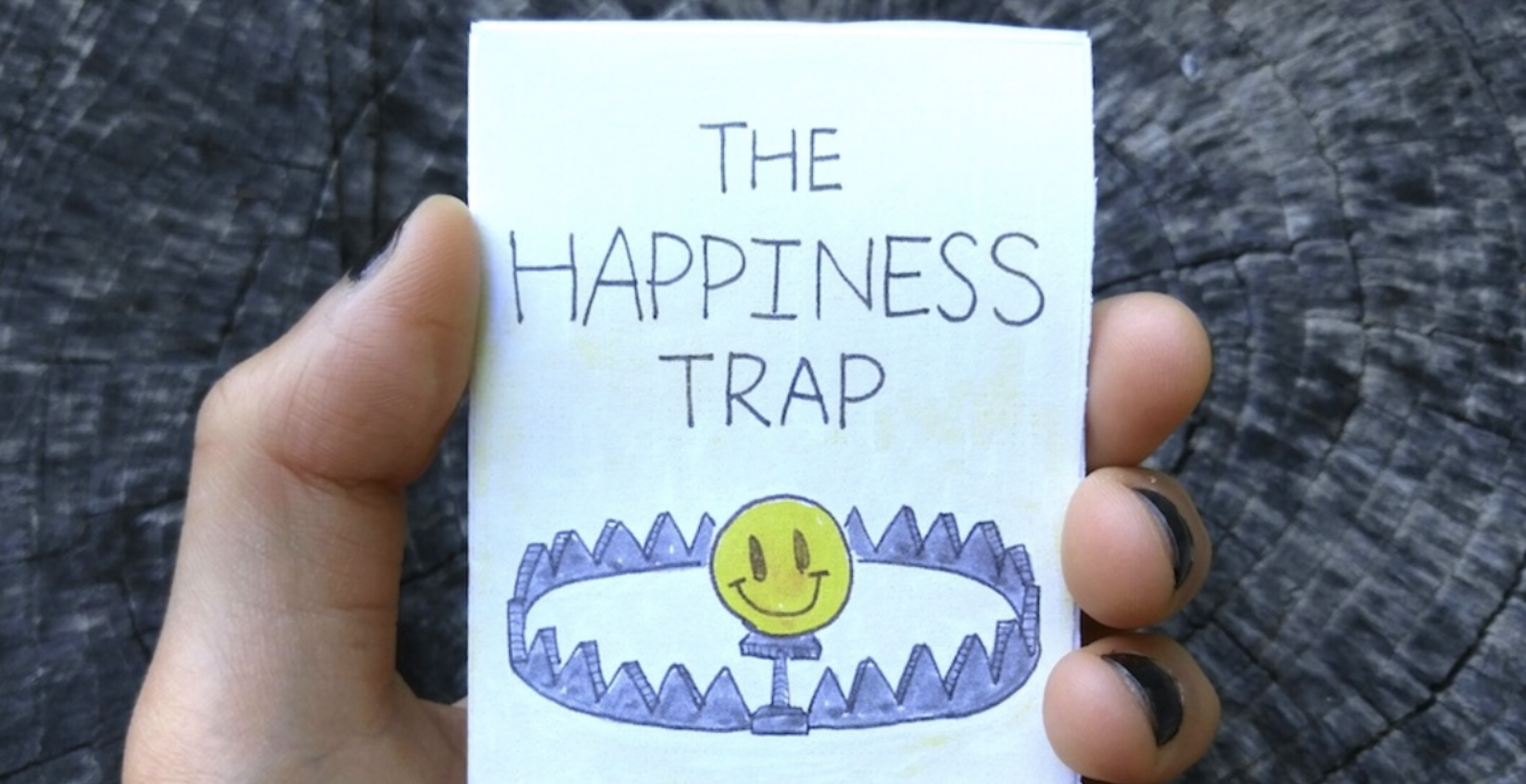Is the UK really the second most miserable place in the world?
Is it really that bad?
In the wake of the International Day of Happiness, we wanted to delve into the deeper layers of what happiness truly means, especially in a world marred by the recent pandemic. While happiness is often celebrated and sought after, it's equally important to acknowledge the shadows that lurk behind it. In a recent poll, the UK found itself among the most miserable places in the world, sparking a necessary conversation about the state of our collective well-being. How did it come to this, and do you believe it?
I wasn’t sure when I first read the article, although, if I’m honest... this is part of the problem! While we scored extremely low on wellbeing, we also scored 19th in the world for the most cheeriest nation in the World Happiness Report. That makes no sense, right? Well, actually it does. In 2023, world national statistics recorded an overall decline in personal wellbeing and mental health across the UK, and Mind charity declared a mental health crisis. A huge factor of this mental health crisis is in our British mindset. That 'stiff upper lip’ and ‘excessive politeness’ isn’t doing us any good and is concealing the underlying mental struggles many of us are going through. It’s certainly something to which I am susceptible to! So yes, I do believe that we are one of the most miserable countries in the world, and you should too. And the more I’ve researched and thought about it, it actually makes a lot of sense why.
World Happiness day Report - March 2Oth
The report found that mental wellbeing levels in 2023 had not recovered from pre-pandemic levels, and that 35 percent of respondents from the UK said they were struggling with their mental health. Interestingly, this same report found that the wealthier a country is year on year, the lower it tends to score, with the Dominican Republic, Tanzania and Sri Lanka scoring highest on the wellness scale. So why is this? And no, it’s not just the weather! Looking further into this, Sapien Labs identified a link between poor mental wellbeing and the pervasiveness of smartphones and online communications. This would explain why the highest levels of poor wellbeing scores came from the younger generation, and why developing countries performed better than the UK. Although, I don’t think this can all be put down to technology. And to understand this, you have to look at when and how mental health levels began to decline.
I agree that technology is a huge factor in declining mental health levels, although I would argue that this is an exasperater, and that a large catalyst for our mental health crisis and poor wellbeing is due to, and has increased since the pandemic. I say this from personal experience, because it is something I have been grappling with ever since; and before the pandemic I had never had problems with my mental health. I would go as far as saying I didn’t understand mental health pre pandemic, and was very naive to the severity of it. I feel for a lot of people there was a stigma around therapy and talking about these things, although thankfully we live in a very different world a few years on. With apps like Talkspace, and Better Help, therapy has never been so personalised, and accessible. It sounds counter intuitive talking about the impact of technology on Mental Health, and then promoting apps, although they are a great way to to find support.
Apps are making therapy more accessible than ever (Talk Space)
When did it start to go so wrong?
The COVID-19 pandemic unleashed a wave of challenges that reverberated across the globe. In the UK, its impact on mental health was profound. As lockdowns ensued and uncertainty loomed, anxiety and depression soared. The prolonged isolation, coupled with fear and grief, left many grappling with their mental well-being. The promise of post-pandemic happiness seemed distant amidst the despair. Like 11.6 million other people, I was put onto furlough in March 2020. I went from being an extremely active, sociable member of a team, to being stuck in a small London apartment with no garden, no balcony, and extremely limited space. Isolated from the world, we were told to stay in our flats, and suddenly we all grappled with the challenges of isolation, loneliness, and for many anxiety. And that’s just my story of furlough, for other friends and colleagues of mine were having to work tirelessly to keep their companies afloat and pick up the workload of those on furlough, often with the pressure of needing to be ‘working hard to bring them back’. In an unprecedented time, we went through a wave of experiences and emotions. I’m not going to talk lots about the pandemic, because I realise this is constantly a topic of conversation and one we all know far too well about. Instead, I wanted to look at how and why this had such a profound effect on not just our physical health, but also mental health.
There were so many factors that could have, and did impact all of us ranging from loss of loved ones, anxiety about the outbreak, loneliness from social isolation, elevated stress from adjusting to new routines and financial insecurity, and heightened depression from reduced activity and disrupted daily life. These are just a few of the common challenges. Although all could be considered epidemics in their own right, and many are not short term problems. Certainly the one that I struggled with most was anxiety coming out of pandemic life. We were expected to just return to life as if it was normal, although in reality a lot of us were very different people, and had lost a lot of confidence. It’s funny because, for so many months all we wanted to do was see our friends and family, although when it actually became a reality, it felt alien and I like many lacked the confidence I once had - and sadly that confidence was slow to fully returned.
Political Mishandling and Distrust:
Never have we had to be so reliant on our government - all glued to the TV at 5pm waiting for the daily updates. Were the government really deploying tanks to our street? Could we leave the house? Can I travel? Can I see my family? When was lockdown going to end? There were so many questions we all had, and we all looked to the government for guidance in these difficult times. And, to add fuel to the fire, we had conflicting messages, delayed responses, senior officials breaking lockdown rules, and instead the trust in political leaders disappeared. The ongoing saga in the news cycles served as a constant reminder of this mishandling, fuelling a compounded distrust of politicians.
Then the Sarah Everard tragedy further amplified this distrust, shaking the very foundation of trust in law enforcement. At the time, I was living in Clapham and lived extremely close to the attack location. As if lockdown wasn’t scary enough, now we had more concerns to grapple with. Over the course of a few weeks, we had road closures surrounding the house and police divers in the pond opposite our house. All of these were constant reminders of scary, unprecedented times. The coverage and awareness of this reached far beyond London, and the importance of this case cannot be underpinned. This happened as we were getting a taste of freedom after various lockdowns, and we all hoped for positive news to bring us together. Sadly, the opposite happened, and in the same way we had distrust towards the government - the nation turned on the police. There were much deeper underlying impacts of this case, and some that are undoubtedly yet to be uncovered. Suddenly, violence towards women, misogyny, and women’s safety were flushed out into the open. We have never properly recovered from this, and now women are far more cautious and aware of the risks of walking, running, and being alone in public... And I am too. Whilst I hope nothing will ever happen and that this is an isolated, horrific event, I don’t have enough trust to let my partner be put in these positions.
Strut Safe: The Call up service making walks home at night safer
Elections, Brexit, Cost of Living, War and Disillusionment:
Let’s not forget everything else that was going on. It’s been quite a few years! The general election presented the nation with choices that left much to be desired, contributing to a sense of disillusionment. The tumultuous Brexit saga further divided the nation, leaving scars that lingered amid the pandemic's chaos. And then there was the rise of remote work. This move was hailed as a positive to come from the pandemic, although many are starting to question this. While flexibility is important, this move away from the office has left many employees yearning for a sense of purpose and belonging, and missing the culture of a team environment. This leaving employers, and employees in limbo as to what is best for their mental health, and productivity, something that is still being greatly debated.
Not to mention the cost of living crisis which was largely sparked by the Ukraine war. Our news cycles have been getting progressively darker and extreme. Recent events in Israel and Gaza have been exposing the world to constant stories of death and destruction which has led the population to be either overwhelmed and heartbroken, or apathetic. While apathy in the face of such atrocities isn’t admirable it is understandable when you consider the disillusionment that we collectively have in our Government to make the right decisions and to stand on the right side of history, following the events of the pandemic.
When you actually breakdown some of the big events, and challenges we went through as a nation, it is actually quite easy to see how this could have such a profound impact on our mental health. We irreversibly changed as a result of the pandemic, and never really had a chance to recover from this. Many people put the mental health crisis down to this lack of a reset and relief. After such a big event, we should have gone into a recovery phase; however, instead, we had further crises: Elections, Brexit, Sarah Everard, Partygate, cost of living crisis, war and the list goes on. It is extremely hard to pin this down to any one of these factors, instead all undoubtedly contributing. The pandemic started a domino effect of events that all had their small part to play in our mental health crisis and lead us to where we are now.
Mental Health at an all time low in UK - Post Pandemic, in particular the under 30’s
There were some positives!
This all sounds very gloomy. Although, it's not all bad… some good also came from the pandemic! Amidst the darkness, glimmers of hope emerged. The pandemic forced a collective reevaluation of priorities. What once drove us, such as careers and material pursuits, lost its luster in the face of existential realities. Many found themselves questioning the pursuit of happiness in the conventional sense. The prevalence of "job resignation syndrome" became apparent as individuals settled for jobs that merely paid the bills, devoid of passion or fulfillment. This wasn’t great for many people's mental health; however, it has also led to the quest for many people making a chage in hope of finding more fulfillment. I would certainly put myself in that camp, having taken the leap into setting up a business with some close friends in 2021. In addition to this, communities forged new bonds, finding solace in shared interests like running clubs and cycling groups. Nature became a sanctuary for many, as people rediscovered the beauty of the UK's hidden gems. The pandemic, while highlighting our vulnerabilities, also revealed the resilience of the human spirit and the power of collective connection.
On a personal level I feel the pandemic has given me some really positive lifestyle changes. Now, more than ever I appreciate the importance of getting out into nature and keeping active. Highlights of my days now include walking my spaniel Pepper, running and cycling - And the occasional run club! Gone are the days of every social occasion revolving around alcohol or food, and now I actually plan meeting friends around these activities. I’m now training for Brighton Marathon in a few weeks, and London to Brighton cycle race in a few months. I feel much healthier and happier, and feel the pandemic was a big catalyst for making these changes.
The Calming power of nature during the pandemic - National Geographic
So what’s next, and how can we recover and look to improve this?
As we navigate the aftermath of the pandemic, it's imperative to acknowledge the challenges while embracing opportunities for growth. Initiatives to prioritise mental health support, foster community resilience, and reevaluate societal priorities are crucial steps toward cultivating a happier and more fulfilling future. And on a personal level, there are a lot of small, meaningful changes you can make to improve your mental state.
Personal reflection: Be honest with yourself and think about where, and when you were most happy and if there are any areas shortfalls in your life. Consider how you can impact and change these. The first step is acknowledging how you feel, don’t suppress this - let that lip quiver occasionally!
Family & Friends: Embrace your relationships and talk to your family and friends about how you feel. This was one of the big reasons non-developed countries scored higher on the happiness list. They have fewer technological and work stressors, and prioritise relationships over everything else. It’s certainly something I’ve never been good at, but I’m getting much better.
Processed foods: Eat healthy! This is such a simple step, although it can have a huge impact on your health and mindset.
Reducing technology: This is something I am particularly bad at, and am trying to improve. Have boundaries with your work, social media and technology. Put that screen away and do something different. Go for a walk, run, meet with your friends, or take up a new hobby.
Go into the office: Remote work has its benefits, although so does socialising and being part of a team. Spend time working with your colleagues in person, and if you’re an employer think how you can improve your company culture through away days, off sites, and team get togethers.
Join clubs: Joining clubs are a great way to meet new people and put yourself out there. This is a fantastic way for people that are lacking connection due to remote work, or feel isolated.
Nature: Get out into nature. Exposure to nature not only makes you feel better emotionally, it contributes to your physical wellbeing, reducing blood pressure, heart rate, muscle tension, and the production of stress hormones. It can also help with creativity!
To finish, reflecting on last week's ‘International Day of Happiness’, it seems important to recognise that the narrative of chasing happiness can also be quite toxic. While the pursuit of happiness and purpose is important, life is life and will always have its ups and downs. Sadness needs to be recognised and accepted as much as happiness is glorified. By acknowledging our collective struggles and embracing opportunities for growth and connection we can pave the way for a brighter, happier future. Let’s look to find meaning behind our sadness, and in this we can find purpose. A quote I think resonates well with this is by Russ Harris, ‘But there’s another meaning of happiness that’s radically different: the experience of living a rich and meaningful life’.
Happiness Trap - Russ Harris - See here
Written by Luke Jones, Co-Founder of Re Cabins - Wed 27th March 2024

